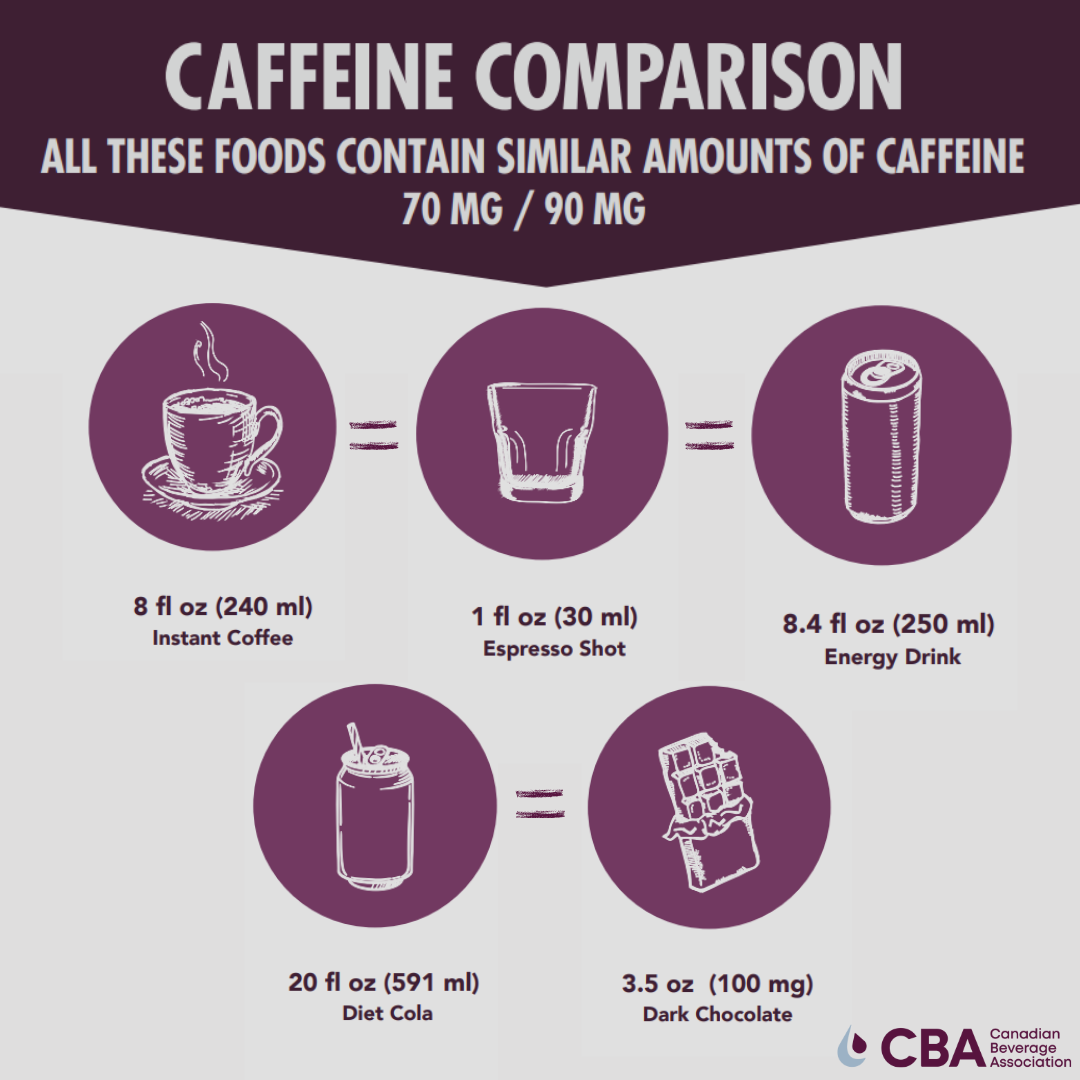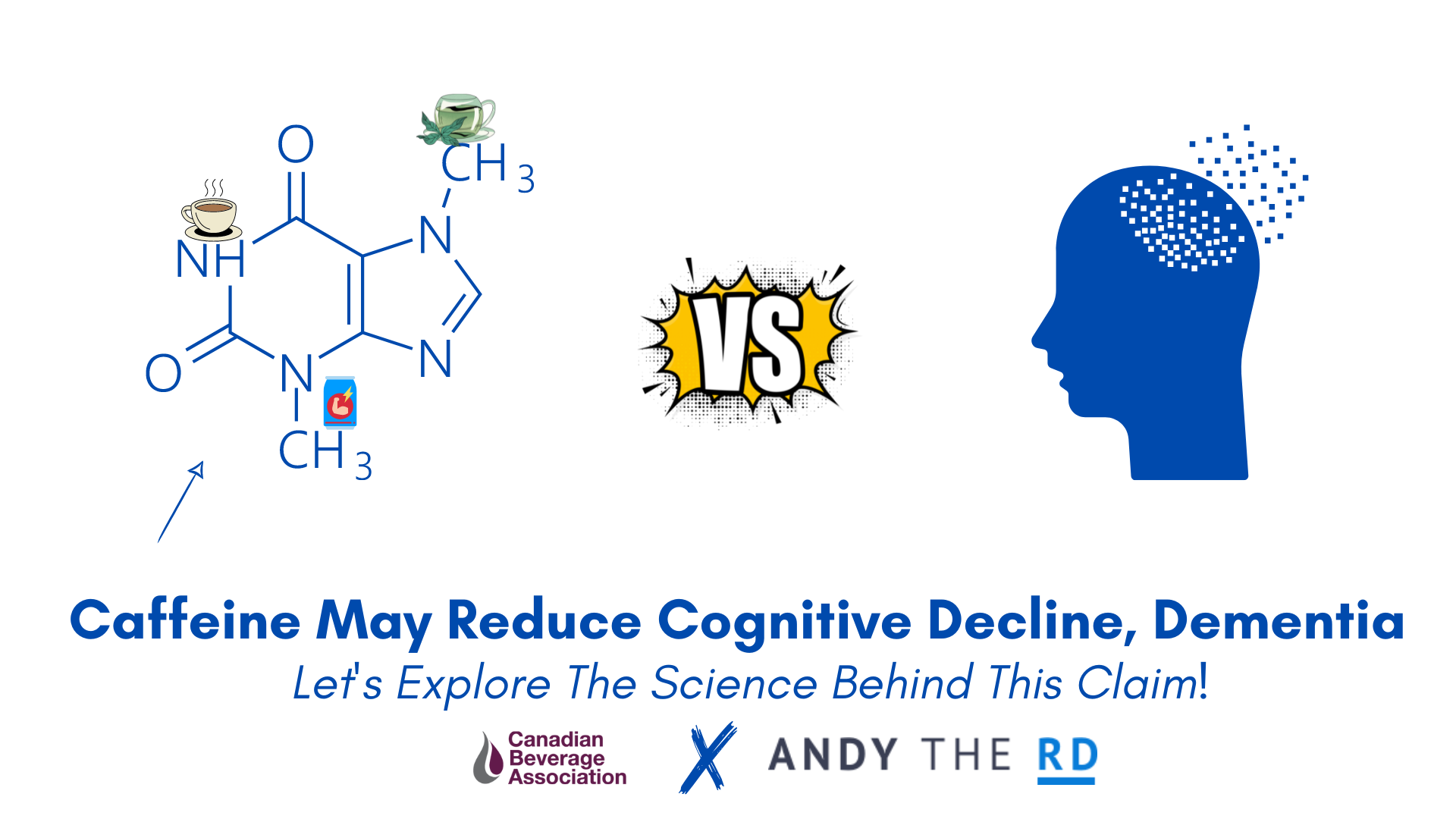When I say that caffeine has captured the hearts and minds of Canadians, I mean it in more ways than one.
The vast majority of adults consume caffeine on a daily basis with coffee, tea and soft drinks representing the major sources while energy drinks tend to contribute less to these totals.
I count myself among them, and many of you will be well aware that I’ve always been on the side of objectivity when assessing the role caffeine plays in contributing to human health.
In that spirit, and also in acknowledgement of Caffeine Awareness Month, I’ve teamed up today with the Canadian Beverage Association to quite literally explore the long-term effects of caffeine intake on the heart and mind.
Let’s get to the good stuff.
Caffeine, Cognitive Decline & Stroke Risk
Caffeine is very well known to reduce perceptions of fatigue and enhance certain aspects of cognitive functioning with acute use, but do these positive effects extend over longer periods?
Emerging science suggests they may.
A 2020 systematic review published in the Journal Of Alzheimer’s Disease took a close look at the scientific evidence from 57 studies involving caffeine intake, dementia and cognitive decline.
Here’s what they found:
1. Only 2 of the 57 studies reviewed showed a negative relationship between caffeine intake and risk of dementia or cognitive decline which the authors suggest is a clear sign that moderate caffeine intake is not very likely to negatively impact brain health.
2. Up to 30 of the 57 studies showed a positive influence of caffeine consumption on reducing the risk and/or severity of dementia and cognitive decline, with the rest of the studies being neutral.
3. The positive effects of caffeine were most likely to occur when consumption was 100-400 mg per day, mostly from green tea/coffee, with benefits seen more often in women than men*.
When we look at caffeine intake relative to Health Canada’s 400mg daily caffeine recommendations, the data shows us that less than 1 in 6 Canadian adults (31 to 70) consumed caffeine above these levels – meaning that the vast majority of Canadians are in line to benefit from these findings.
To put this into perspective, a cup of coffee contains around 80mg of caffeine and a 2010 paper published in the Journal Of Alzheimer’s Disease found that those who consumed an average of 4 cups of coffee daily had a 65% reduced risk of suffering form dementia or Alzheimer’s disease.
It has been proposed that coffee’s bioactive components (caffeine, various antioxidants) may work in concert to slow the accumulation of amyloid plaques that are associated with the progression of Alzheimer’s disease.
Things get even more interesting though.
The intake of caffeinated beverages at around the levels mentioned above have also been correlated with a reduction of stroke risk (~32%) in older adults.
Stroke, caused by impaired blood flow to the brain, is known to increase one’s future risk of dementia and Alzheimer’s disease.
Additionally, data out of the acclaimed JAMA journal suggests that moderate caffeine intake also protects against Parkinson’s disease.
The benefits of moderate caffeine intake extend beyond mid to late life though, let’s take a closer look how caffeine intake might modulate depression risk in younger adults.
Caffeine & Mental Health
Honesty in the discussion around caffeine and mental health, to me, means two things.
The first is acknowledging that, in some individuals, higher caffeine intakes may contribute to jitteriness and anxiousness and a level of self-awareness around personal intake patterns may be required to get the most out of one’s caffeine intake for those who fall into this category.
The second is acknowledging, with equal conviction, that caffeine intake has regularly been associated with mental health benefits in the scientific literature.
A 2015 meta-analysis out of the Australian and New Zealand Journal looked at the aggregate relationship between caffeine and depression including data from 8 studies with over 30,000 participants.
They found that caffeine intakes above 68 mg/day but below 509 mg per day, not dissimilar ranges to those previously discussed, was associated with a significant reduction in depression risk.
Caffeine Intake Beyond/Coffee Tea
An important scientific reality that is important to address in today’s post is the fact caffeine is caffeine.
While coffee and tea are the most significant contributors of caffeine intake in the general population, they are not the only means by which someone might pursue caffeine intake.
Many of you will be aware that a wide variety of caffeine containing products, including energy drinks, are readily available to consumers.

As I’ve written on previously, the caffeine in these products functions the same way as the caffeine found naturally in coffee and tea.
In other words, as it relates specifically to caffeine’s physiological effects on the body there is no difference between naturally occurring and synthetic caffeine.
if you are looking for more information on caffeine science and the role that caffeinated beverages play in the daily life of Canadians, I highly recommend taking a closer look at this Canadian Beverage Association resource.
I’m confident you’ll find it quite insightful, much like today’s content!
Until next time,
Andy De Santis RD MPH



